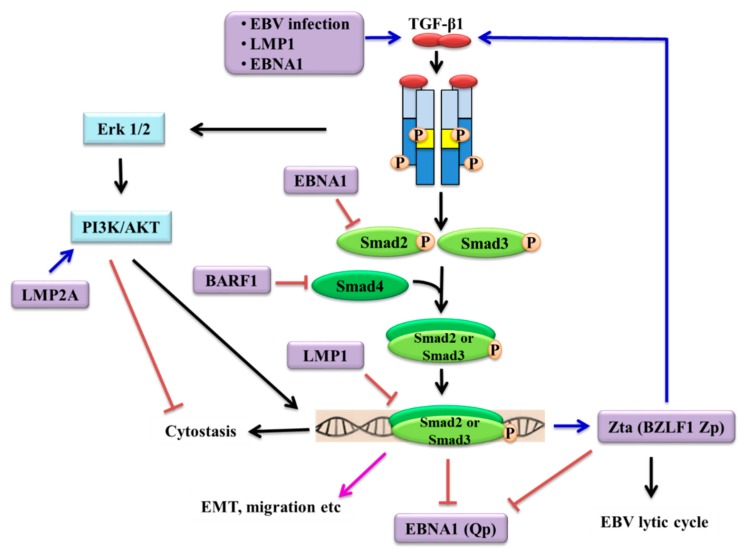Figure 2.
Modulation of TGF-β signalling by EBV. EBV infection or EBV-encoded latent proteins (LMP1 and EBNA1) can stimulate the expression and secretion of TGF-β1 in epithelial cells. However, cancer cells often do not respond to the cytostatic effects of TGF-β, partly through the repression of signal transduction by the EBV-encoded proteins (EBNA1, LMP1, LMP2A and BARF1) through various mechanisms. The cancer cells often sustain a functional TGF-β core machinery and the excessive production of TGF-β drives aggressive malignant phenotypes. TGF-β signalling also appears to be crucial in regulating the balance between latent and lytic cycles in EBV-infected cells. TGF-β facilitates lytic reactivation in EBV-infected cells by stimulating the expression of BZLF1/Zta via both Smad-dependent and Smad-independent pathways. Zta induces the production of TGF-β1 which in turn, together with Zta, suppress the transcription of EBNA1 from Qp to disrupt EBV latency.

